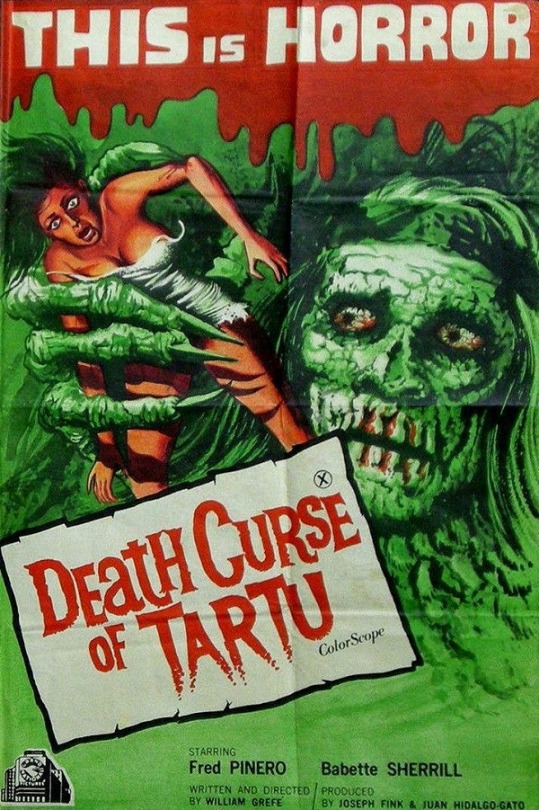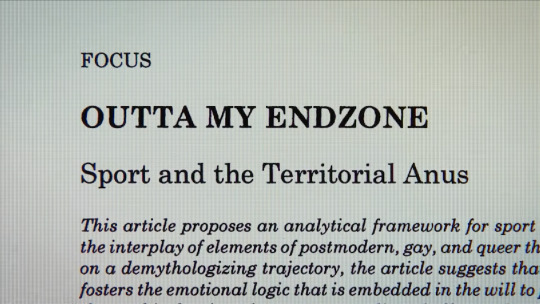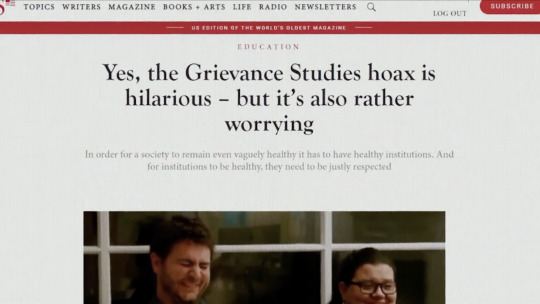#sherman nonsense
Text

I'm just trying to remember a basic fact and google is being the least helpful website like wtf is this history facts from an alternate universe?
William Tecumseh Sherman writing his future memoirs at the age of 26:

8 notes
·
View notes
Text

#radar o'reilly#colonel flagg#frank burns#father mulcahy#bj hunnicutt#hawkeye pierce#trapper mcintyre#maxwell klinger#sherman potter#m*a*s*h#sams nonsense
125 notes
·
View notes
Text










Death Curse of Tartu (1966)
"Now look, Billy, the human brain is very mysterious. Sometimes it makes us see things that don't exist and hear things that never were."
"How do you explain the people that were killed, then?"
#death curse of tartu#william grefé#1966#horror film#american cinema#fred pinero#babette sherrill#bill marcus#mayra gómez kemp#sherman hayes#gary holtz#maurice stewart#doug hobart#frank weed#brad f. grinter#more deep digging into the rural schlock misadventures of Florida's own H G Lewis‚ the singular Bill Grefé esq#somehow even less polished than previous monster mash Sting of Death‚ this is an almost maddeningly inept film#Greféy baby‚ to give him his dues‚ makes the most of his Everglades location but that's about all he nails#filled with subpar performances‚ an inexplicable and grotty script and delightfully naff effects#all of which sounds like i hated it but truthfully there are small joys to be found in this bizarre slop of nonsense#be it an impromptu disco party by a swamp‚ or the sullen way our chief archaeologist lead fishes for the remains of his students after a#poorly staged shark attack‚ or just trying to figure out whether or not Tartu is wearing pants in his final struggle (my verdict: he's#wearing some kind of flesh coloured tights). absolutely terrible as indie filmmaking but somehow irresistibly compelling as trash cinema
10 notes
·
View notes
Text
The Mr. Peabody And Sherman fandom is... Strange.
3 notes
·
View notes
Text
At the FTC, a quiet, profound shift on antitrust

Sometimes, a tiny change in the political process comes along that makes you realize just how far things have come — a change that’s both substantive and symbolic. Something like this terse, six-paragraph memo from the FTC, a deceptively anodyne wrapper for an explosive moment:
https://www.ftc.gov/news-events/events/2022/05/ftc-justice-department-listening-forum-firsthand-effects-mergers-acquisitions-technology
Here’s the crux: “The FTC and DOJ will host a series of listening forums to hear from those who have experienced firsthand the effects of mergers and acquisitions beyond antitrust experts, including consumers, workers, entrepreneurs, start-ups, farmers, investors, and independent businesses.”
If you aren’t chest-deep in weird antitrust lore, this probably seems like it’s par for the course. But believe me, this is a hell of a moment — a moment of restoration, a return to a vital, long-dormant principle in American governance: the idea that corporations should not be allowed to ruin the lives of the people around them.
This was the idea behind antitrust in the first place. As Senator John Sherman said to Congress as he labored to pass his landmark antitrust law in 1890: “If we will not endure a King as a political power we should not endure a King over the production, transportation, and sale of the necessaries of life.”
https://marker.medium.com/we-should-not-endure-a-king-dfef34628153
“If we would not submit to an emperor we should not submit to an autocrat of trade.”
This was the foundation of American antitrust: the idea that companies of a certain scale would, by dint of that size, be in a position to exercise the autocratic control of a monarch, and return America to a tyrannical monarchy cloaked in the pretense of industry.
For nearly a century, this was the bedrock of antitrust enforcement, the idea of “harmful dominance” — that companies could attain a scale that made them a danger to the very idea of democratic control and legitimacy.
Rich people seethed and chafed and schemed to overturn this. They wanted to rule as if they were kings, wanted to avoid the scourge of what Peter Thiel calls “wasteful competition” (“competition is for losers” — P. Thiel). They bankrolled and promoted a deranged conspiracist named Robert Bork — Nixon’s solicitor general — who advanced a truly bizarre theory of antitrust.
Bork was a conspiracist, whose book “The Antitrust Paradox” maintained the historically unsupportable nonsense that what Sherman, Clayton and the other legislators behind America’s antitrust laws really wanted was to block “harmful monopolies” and leave the “efficient monopolies” to grow and rule, as benign kings:
https://pluralistic.net/2021/08/13/post-bork-era/#manne-down
Now, this is untrue. It’s not just untrue, it is unhinged. No reading of either the laws in question or the debates preceding their passage supports this idea. It is a fantasy, alternate history. A lie. But it was a convenient lie, because if it were true, then all the rich people promoting Bork’s fringe theory could create monopolies and rule as kings.
Ronald Reagan bought it. After a failed bid to put Bork on the Supreme Court — he failed his confirmation hearing so spectacularly that anyone who self-immolates in DC is said to be “borked” — Reagan adopted his antitrust theories. They spread around the world thanks to other monsters of the era, Thatcher, Mulroney, Kohl, Pinochet.
The idea infected the judiciary: the cushy Manne seminars, held every summer at a luxury resort, flew in 40% of the Federal bench for indoctrination seminars on Bork’s theories. These judges learned that the only people who should be consulted on antitrust matters are economists, specifically the kind of economist who trades in the kinds of highly abstract, inscrutable mathematical models that Bork and his University of Chicago colleagues specialized in.
Whenever a merger was in question, the companies could pay a Chicago economist to build a model that proved that the merger was “efficient” and thus good for “consumer welfare.” If that merger resulted in prices skyrocketing — the one thing “consumer welfare” was supposed to concern itself with — those same economists could be paid to produce a new model to prove that the price increase wasn’t the result of a monopoly — it was due to oil prices, or labor prices, or the phase of the moon.
Pre-Bork, everyone who was harmed by a monopoly had standing to seek redress from a regulator. If monopolies resulted in pollution, or unsafe working conditions, or corruption, or the annihilation of a city’s character or a town’s way of life, the people affected could tell their stories to a regulator and expect that their experiences would be factors in the calculus as to whether to prosecute the monopoly.
But after Bork, the only people whose input mattered was Chicago-style economists whose mathematical models couldn’t be interrogated by laypeople. They became court sorcerers to the competition regulators, and when petitioners came before the regulator, they would slaughter a goat, read its steaming guts, and pronounce that “consumer welfare” was doing fine. If the petitioner had the temerity to say that they read something different in the offal, the sorcerer could smirk and dismiss them: “Look who thinks he can read the economy in the guts of a goat? He didn’t even get a economics degree from the University of Chicago!”
For 40 years, antitrust has been a coma, sleeping while monopolies formed in every sector, destroying our planet, our regulatory integrity, our national prosperity, our public safety and the confidence of people in their democracies.
But as Stein’s Law has it, “If something cannot go on forever, it will stop.” Something has to give. A new crop of “neo-Brandeisians” — lawyers, economists, activists, workers — has sprouted, insisting that Bork’s ideas have failed us and that they need to be set aside.
One of the most prominent of these is Lina Khan. Today, Khan is the chair of the FTC. Five years ago, she was a third year law student (!), whose landmark law review article, “Amazon’s Antitrust Paradox,” was a scorching indictment of Bork that tore through legal circles and upended orthodoxy:
https://www.yalelawjournal.org/note/amazons-antitrust-paradox
Khan hasn’t been shy about her plans to restore American antitrust to its roots as a doctrine of economic liberty, in which workers and small business-people do not have the course of their lives determined by Sherman’s “autocrats of trade.”
She and the other top Biden antitrust enforcers — Tim Wu in the White House, Jonathan Kanter at the DoJ — worked to produce the Biden executive order on antitrust, a genuine landmark document specifying dozens of specific actions that the admin would take to blunt corporate power. Less than a year on, they’ve hit every milestone in that document.
https://www.whitehouse.gov/briefing-room/presidential-actions/2021/07/09/executive-order-on-promoting-competition-in-the-american-economy/
In January, the FTC and DoJ announced that they would be reviewing the agencies’ merger guidelines — again, something that sounds like business as usual to a layperson but really marks an enormous shift in American politics. The new guidelines will make it much harder for big companies to grow by merging with each other or gobbling up little businesses before they can become competitors.
https://www.ftc.gov/news-events/news/press-releases/2022/01/federal-trade-commission-justice-department-seek-strengthen-enforcement-against-illegal-mergers
And now there’s this week’s hearings, in which the FTC and DoJ will hear from “who have experienced firsthand the effects of mergers and acquisitions beyond antitrust experts, including consumers, workers, entrepreneurs, start-ups, farmers, investors, and independent businesses.”
With the exception of “consumers,” these are the people who, for 40 years, have been laughed out of the room by antitrust enforcers. The people who have been told that they have nothing to say when it comes to the way that giant corporations undermine our quality of life, freedom of action, and economic chances.
This may sound like normal activity for a competition regulator (because it should be normal), but this is extraordinary. For the first time in a generation and a half — in ten presidential administrations — everyday people will get a say on whether corporate power should be blunted.
This is huge.
[Image ID: Norman Rockwell's WPA painting 'Freedom of Speech,' depicting a working-class speaker rising to speak in a white-collar crowd at a town meeting.]
942 notes
·
View notes
Text
What a day, am I right? I'm just making a bulleted list to remind myself of these goings on, and make some uneducated speculations that will be proven wrong! I'm in clown mode; I need it to make sense. I write these thoughts just for me.
Casey Bloys did say multiple rubbish things today, but it really points to us annoying them. So we should keep it up! 🥰 In the end, I don't think OFMD is staying with Max (which is good!), but we should keep up the noise to show OFMD's value to other platforms and just to annoy Bloys and Zaslav!
Long bullet list:
OFMD S3 was in preproduction, we're mostly sure of that. It explains the vague posting of the cast and crew in the week before the sudden cancellation. If it actually didn't have "the numbers", it would never have made it to this step.
The Emmys were last night, and the WBD/Max socials were posting dozens of posts across the platforms that OFMD fans were able to keep up with. It was exhausting! And OFMD keeps coming up in Emmys interviews that Bloys is doing. We'll be able to annoy them more efficiently once they slow down!
"I need Gay Twitter to come out and support Gilded Age," Bloys said in an interview released this morning. This is a completely nonsensical statement, and we don't have the context or tone to tell if he's serious or joking. Given the "No more OFMD on Max!" at the end of the day, I think it was serious. OFMD is all queer, and from what people said, Gilded Age has a forgettable gay side plot? That makes them the same? Do they think stepping back in representation is appealing? WBD/Max does not understand why OFMD is successful and think that lazy, minimal representation has the same resonance
"Gay Twitter": What I think is they want to keep a large, excited, and engaged fandom intact as they remove the thing they're excited about. This honestly feels like a desperate, quick band aid on a problem that Max was not expecting: they like the engagement, and they were planning to keep it. They had OFMD taken from them rather abruptly, and after years of purging queer shows, they had no show that they could slide the fandom into and retain the massive, free marketing. Because it feels abrupt to them, that's why I think it was David Jenkins that walked away from them, not a "the numbers" BS.
Why would Jenkins walk? More slashed budget, more slashed runtime, more executive meddling like what happened in Calypso's Birthday. At this point, I don't want Max to renew OFMD. I want OFMD to go to a different platform that isn't a dumpster fire.
Until tonight, I did not know that Casey Bloys is gay. I understand less now. He has to give the company line, but how much was him? Is Gilded Age his favorite show?
I will never watch the Gilded Age
Astroglide came to our rescue soon after the Gay Twitter thing, and David Jenkins made an appearance! In a second comment, he may have used the past tense, but that's what he has to do right now.
On engagement, if the cast and crew were really, fully done with OFMD, they'd be posting more retrospective material on their socials because this is the biggest thing most of them have done, and they need to advertise themselves in their profession. They're quiet. Rhys posted thirst traps after a few days. Alex Sherman was liking renewasacrew items today. DJenks showed up to joke about lube. Vico and Con posted on their insta stories the PinkNews headline that OFMD deserves an S3. They are all very, very quiet right now.
Bloys showed up late in the day with another banger: "Nobody likes to cancel a show. But the fact of the matter is the numbers weren’t there for a renewal. But I will say, whenever we cancel a show, if a creator can set it up elsewhere, we support them. That is an option for Our Flag; it didn’t make sense for us but it might be for someone else. We let the producers know if they can find a home, we’ll be supportive of that."
If pressed for what "the numbers" mean, they won't be able to answer. It's sure to become a common refrain with trolls, but it is a nothing phrase. We know the audience numbers, the critical reviews, the engagement, and the budget were perfect. "The numbers" either mean "not enough white cishet" or "won't be a franchise milked into oblivion."
"If a creator can set it up elsewhere..." Jenkins is totally in talks right now. There is no way this is going to be passed on by a stable platform.
I hope the situation that happened with Acme vs Coyote is happening again with TV shows: i.e., WBD/Max cancelled a product for no reason, so all studios should be cancelling pitch meetings with them. WBD/Max is failing and cannot support to nurture original ideas.
I know moving platforms will cause an OFMD S3 delay, but that just means more time until the last episode! Since OFMD actually has "the numbers", they're going to be picked up.
We got #hbdzaslav (happy birthday, zaslav) trending yesterday on his birthday, and I bet he didn't even appreciate it!
For the lolz, NASDAQ comparisons over the time since the OFMD announcment:
WBD (owner of Max): 1/9 open 11.23, 1/16 close 10.35 (7.84% loss) -- note also WBD posted a 2.82% loss just today
Amazon: 1/9 open 148.46, 1/16 close 153.16 (3.17% gain)
Disney (includes Hulu): 1/9 open 91.01, 1/16 close 93.05 (2.24% gain)
Netflix: 1/9 open 475.51, 1/16 close 481.24 (1.21% gain)
Comcast (includes Peacock): 1/9 open 43.21, 1/16 close 43.09 (0.28% loss)
Paramount: 1/9 open 14.53, 1/16 close 13.23 (8.95% loss)
Apple (includes Apple TV): 1/9 open 183.92, 1/16 close 183.63 (0.16% loss)
NASDAQ: 1/9 open 14,744.13, 1/16 close 14,944.35 (1.36% gain)
Remember that WBD wants to merge with Paramount, and they're the only two major streaming stocks in freefall. I want OFMD to flee to a safe harbor, and I want Max and Paramount to merge into a horror abomination that we can laugh at from afar as it implodes.
28 notes
·
View notes
Text
Fwip, as part of his daily exercise and mental health regimen, power-walked from Gobland all the way to Tumble Town to annoy Jimmy. With his deputy badge in hand, and a grin on his face, it was hard to be blue. Tormenting/flirting/joking with Jimmy was the highlight of his days, and now that the empires members were all settled once more from their excursion to Hermitcraft, Fwip decided it was high time to continue the tradition.
Jimmy had said something in chat about the jail, so that’s where Fwip headed. He’d just crossed the railroad and was headed for the stairs of the jail, whistling a little tune, when Jimmy came striding out, looking right at him. This was very typical, as Fwip had, as said before, kind of made this torment a habit. However, Jimmy had a triumphant sneer on his face as he approached the goblin, which was an unusual sight.
“Fwip. Come to give me back my badge, as it is mine to give and take as I please?” Jimmy asked.
“No. Lol.” Fwip replied, tossing and catching the badge.
“That’s fine.” Jimmy said, crossing his arms and giving Fwip a rather cocky head waggle.
“What’s got you so merry?” Fwip asked. “Did Andy finally play with you?”
“Very funny. Not!” Jimmy scowled. “Boy, I ought to- no, no, I’m not falling for your nonsense today, Fwip. I actually have someone I’d like you to meet. He just got in, why don’t you come inside?” Jimmy walked back up the stairs and through the door of the jail. Fwip followed, wondering if Jimmy had gotten another cat or something.
“Fwip, meet my new deputy.”
Fwip’s mouth fell open as the figure that had been sitting behind the deputy desk stood. The being was huge with muscle and fat. He had many battle scars from the little skin Fwip could see, and had his cowboy hat slung low over his eyes, looking the goblin up and down. He was some kind of pig or boar, with the intelligence eyes of man.
“Yooo, what’s good.” The pig spoke in a low, yet oddly chill voice.
“Fwip, meet Tec- I mean, Deputy Sherman Thompson.” Jimmy was grinning from ear to ear. “Do you remember the ex-deputy I was telling you about?” Jimmy asked the pig.
“Hm. Yea.” The pig replied, and very casually picked up a huge crossbow that had been leaning against the wall. “I could take him out now, if you want. It would be super funny.”
“No, no, not yet.” Jimmy said, putting a hand on the crossbow, and taking it back off very quickly when Deputy Sherman Thompson gave him a look. “I just wanted Fwip here to meet you.”
The deputy shrugged, and just kind of looked at Fwip. It was very unnerving, to say the least.
“You- no!” Fwip squeaked out. “There’s no way this dude is even qualified to be a deputy!”
“Deputy Thompson, could you please delight us with a quick backstory?” Jimmy asked the pig.
“Uhh, yeah, sure. I used to be a sheriff, back in a town that’s long past dust now. Kept up with the criminals, locked up the famous Crops, although he wasn’t all that bad. Killed some bad guys when it called for it. Did some other stuff. Now I’m here, out of retirement, because Mr. Gaming here is an old friend. Heard he needed a new deputy, and Phil said it would be good for me to make some new friends.”
“Very impressive resume, as you can see and hear. What have you done with your life, Fwip, besides stealing and being annoying?” Jimmy sneered at Fwip.
“Mr. Gaming, I hate to say it, but that insult was so weak it couldn’t have blown over a napkin.” The deputy replied. “It’s okay though. Im sure you’ve got other stuff going for you.”
“Anyway.” Jimmy continued. “Fwip, I’d get out of my Tumble Town real fast if I were you. Or, you could always leave when you respawn from being slain. Your choice.”
“I- you- I’ll be back!” Fwip said, tripping over his own feet to escape. “You can’t get rid of me that easily!” He ran, wondering how on earth he was supposed to compete with the new deputy.
80 notes
·
View notes
Note
Been nursing an Inkubus scenario a chunk of the day SO decided to slide it your way 😎 (apologies in advanced if it comes out jumbled and nonsensical 🙏🏻)
So the basic premise is that Ink has been pursuing Y/N for a little while but they haven't entirely budged on the idea of going out with him for one reason or another (gosh I wonder why)
Of course, persistent bastard that he is, Inkubus has not given up on his quest. So one time when he and Y/N run into each other, he's really laying on the charm, saying how he promises to make sure Y/N has a great time, etc etc.
At this point, figure he's holding eye contact with Y/N, maybe even adds the sly move of stroking his thumb along their cheek or chin.
Of course his magic would be aiding in the obvious tension in the air, and perhaps this time around, Y/N is caught a little off guard with things and falters just a little bit.
And of course by "falters", I mean that the tension and everything get the best of Y/N for just a few minutes, and they lean towards Inkubus almost as if they're about to kiss him....
And then they snap back to reality and come back to their senses, give him a quick shove away and then quickly run off 😂
Inkubus did not win this time around.
THIS MADE ME COMBUST.
First of all though- I love your use of the word 'quest' XDD Inkubus do I look like a holy grail, to you?-
Also 'run into each other'. Montana we both know if it involved Inkubus it was most certainly NOT a coincidence XDD But oh lord that man would tooootally go oh Y/N! fancy seeing you here... on your street... truly, a pleasant surprise. Or fate? Hm?
So- how was your doctors appointment? Did Dr Sherman have good news?
And you're just standing there like =_= how did you get my medical records
SECOND OF ALL!- I had to write you a little something for this amazing idea, of my lord. I hope you like this and it helps with your period! ^^
The middle of the street is a precarious place to stand, even in the middle of the night when their aren't any cars around, but right now under the street lamp with mere inches between you and this demon- you almost feel comfortable.
Which is completely insane, but somehow he always makes you feel Like That. How?? You don't know. He has a cheeky, manipulative Quality. Or evil magic. Either way-
And has this man gotten even more charming?? Has he gotten even more handsome?? Or is it that look in his eye right now? Like you're exactly what he wants. All that he wants. And he'll try everything he can think of to get you- and he can think of a lot. He's very old, and very clever, and his moral code is... 'relaxed'.
Not that he's been sinister with you so far- no, instead he's been completely honest as well as devilishly endearing and, at times, funny.
So far though, up until this moment at least with his heated devils-eyes locked on yours and his hand on your face, his thumb on your lip and a smirk on his, you've managed to resist. Sure, there has been a definite part of you that wanted him, but he's evil. And getting mixed up with him, Inkubus, could only mean trouble.
"I promise, dear, I swear to you; If you'd only let me, I would show you an evening wilder then your dizziest daydreams, hm? I'll take you anywhere. I'll get you anything. All I ask for, is your lovely company. Don't worry, I wont take you for too long... couple of hours... " He shrugs, a glimmer of mischief apparent as his grin widens. "Well, unless you ask, to stay."
... But god right now your legs feel weak, as your fingers clutch at his coat. Your head feels fuzzy staring back at him, listening to him. And your body feels burning hot like you're wearing way too many clothes-
Parting your lips and dampening them with your tongue, you attempt to say something. Reject him once again, maybe. "Uh... I... " But nothing comes out. Instead you only find yourself sneaking the tiniest bit closer to him, taking a deep breath. Your eyelids are falling almost-closed, and you can feel his breath on your lips, and- "... well... " ... maybe... maybe... just an hour couldn't hur-
Just as soon as you see the glimmer of mischief turn into a forest fire, you come to your senses. Wait!-
"Hold on- Absolutely not!" You exclaim, pushing Inkubus off you; Face burning hot still, heart beating rapidly still, but otherwise coming to your senses. Oh god oh god that was close!- "Hey! Don't use your pwers against me like that!"
Inkubus is smirking fully now, frustratingly amused as he raises his hands on either side of his head. "I'm afraid I didn't do anything, then, my dear~ That was our pure natural chemistry- mostly. Hm, and you were so convinced we didn't have any of that, huh~... Interesting, don't you think?... "
... You refuse. No. You refuse!! to believe it. He has to be messing with you. He must have used some kind of aphrodisiac spell. Instead of arguing, though, because just looking at him is putting you at risk of losing your senses all over again even now, you turn on your heel and start once again down the street towards your house. "Nope. No- N-Bye!"
His voice is full of smugness. "You cant hide from this, Y/N~ "
Let me try! "Yes I can!!" You call back, crossing your arms, trying desperately to push the idea of kissing that demon out of your head.
17 notes
·
View notes
Text

Sherman T. Potter
Likes: Horses
Dislikes: Nonsense
Consider putting a spotlight on Sherman Potter for Week 1 of A Day in the Limelight Challenge!
Click here for more info!
10 notes
·
View notes
Note
late to the party, but trick or treat, if you're still up to some!
You get...a cut scene from Home 8 about Peggy hating the whole Captain America thing! (A cut scene I thought I'd lost by accidentally deleting the whole thing but stumbled over it today.)
Rose leaned her hip against the next sink over and watched Peggy worriedly. “Do you want to talk about it?” she asked. “Before you go back out there, I mean.”
“What’s there to talk about?” Peggy said coldly, dabbing rouge onto her cheeks to try and even out some of the blotchiness left behind from her tears. She wasn’t the kind of woman who cried prettily. “Steve married another woman, and now she’s going to be on the cover of every newspaper and magazine from here to Timbuktu.”
“Did you want to be?” Rose asked shrewdly. “On the magazine covers, I mean, not the other part.”
“Of course not,” Peggy said, turning to look at her. She had watched Steve sit – well, stand – through too many photoshoots over the course of the past year and a half to want any part of that. “The whole thing is absurd, I’m astonished that Phillips is still letting it go on when he has the opportunity to let it die a natural death.”
“The whole thi – what, Captain America?”
“American propaganda nonsense,” Peggy said, going back to fixing her makeup. She had never really understood Steve’s insistence on sticking with the Captain America name and uniform, albeit with the latter redesigned for actual fieldwork instead of a stage show. The shield was useful enough, but he hadn’t had to paint it red, white, and blue and he certainly hadn’t had to let himself be dragged around by General Eisenhower because the Yanks needed to be bucked up from time to time.
Peggy was well aware that he hadn’t had a choice in the matter – she knew Colonel Phillips had gotten into it with General Eisenhower a few times, even though under normal circumstances Phillips liked and respected Eisenhower – but was equally aware that getting dragged back and forth for the American propaganda machine had probably set the SSR back at least three months in the fight against Hydra.
Rose’s expression, visible in the mirror, was a little uncomfortable. She was as aware as Peggy was that for whatever reason, Captain America mattered to Steve, but knew as well as Peggy did that it wasn’t exactly convenient, at least not for the SSR. Instead of being able to send Steve off with the Howling Commandos after the remnants of Hydra, the SSR was now getting dragged into the end stages of the European war Not a bad thing in and of itself – after living through the Blitz and the V-1 and V-2 rocket attacks, Peggy was certainly ready for a little revenge – but with both the 107th and the Commandos redeployed to the front in Germany that they were going to lose some Hydra stragglers. Either they would get away cleanly or they would be picked up by the Soviets, neither of which was a good option.
Peggy had watched a little of that afternoon’s photoshoot before she had gotten too disgusted with the whole thing and left to do something that was actually productive. She had expected Steve’s long-suffering familiarity with the process; she hadn’t expected Natasha’s. Sherman was, she had to admit, going to get some marvelous photographs out of it, the kind of pictures that would end up on film posters and magazine covers. The idea of being commercialized like that, of being narrowed down to a handful of still images, gave Peggy hives; she had no idea how Steve put up with it.
No. She didn’t want that. She never had.
#this follows an earlier version of the steve and peggy stork club scene#gendertrickery#bedlam replies#meme response#home behind the scenes#iw time travel concept
13 notes
·
View notes
Text
someone on reddit made a photo post of John Sherman but they wrote that his full name was John Oscar Sherman...that's not right is it?? google isn't even showing him as having a middle name but I don't think I've read anywhere that stated his middle name was Oscar
I'll even pull out my photo of the Sherman family bible...there's no damn Oscar there. Granted, whoever wrote it also spelled Cump's name as William Tecumtsech so... lol

#sherman nonsense#Ive always thought it was def not the parents who wrote in the family bible but it was written like decades later by someone#someone who didnt know how to spell tecumseh lol
4 notes
·
View notes
Text
The tags in that Lenny Bruce gif I reblogged are not enough, I have to rant 😄 I completely forgot how much S5 annoyed me.
First of all, I thought the finale was the last episode of S4. And it made sense, with Midge out in the blizzard, looking at that billboard. A hint to what's to come, left to the audience's imagination. To my surprise, this spring they released S5. Ok. It was mostly a waste of time for me. Not entirely and I'll explain why. I wasn't some hardcore fan, I don't even know how it's being talked about online (although I think there's some ship discord with the whole Lenny and Midge thing). Mrs Maisel was one of my comfort tv shows. You know, when even the beautiful setting and the clothes are enough to keep me in front of a screen once a week. Which is why I could always ignore the little bits that annoyed me.
And now I have to get into Amy Sherman-Palladino territory. I like her writing style. Overall. I watch Gilmore Girls. A season each spring and autumn. I like the fast talking. But my god, the line between liking and hating is so thin sometimes. It's like sometimes she pushes too hard and disrupts the balance. I can keep up with a fast talk argument between 4 to 5 characters but if it last just a little bit longer and if it gets a bit more nonsensical, I'm done. I feel tired and I get angry myself. I know this is about me and not really about the writer. I'm sure plenty of people love that exact thing about her. Gilmore Girl success is a testament to that.
But getting back to Mrs Maisel, what was the point though? They went back and forth between timelines which is in theory a good writing technique, but here it was messy. For four seasons we were stuck in late 50s-early 60s and now it jumped through decades in the future to show us glimpses of what would happen. I felt it was unnecessary and it was sloppy. What made the show so fun and compelling to watch was seeing Midge trying to make it as a comedian in that specific period of American history. It was about her beginnings. Do I need to know how her adult daughter resents her later? Not really because if someone were to ask me what I would think would happen, I would have probably given the same answer based on the mother-daughter almost non-existent relationship in the entire 4 seasons.
Also, dragging that whole Midge and Joel thing up until the end? Really?
And now I'm making my way down to the Lenny Bruce situation. I like the idea of having this character be but an appareance in Midge's life from time to time. A will they, won't they. The aura of mistery. The palpable tension (the Las Vegas episode was hotter than the one in which they actually slept together in S4). But Luke Kirby is so damn charismatic that it was impossible for me to feel content with only 2 episodes/season. The mood changed the moment he was on screen. It was electrifying. Not a lot of actors can do that. Or maybe I'm just highly subjective. Cause it's not only because he's hot though. He just knows how to move in a scene, how his gaze should land, his intonation...some perfect combination that left me wanting for more.
7 notes
·
View notes
Text

Duck & Cover http://Newsday.com/matt
* * * *
LETTERS FROM AN AMERICAN
October 4, 2023
HEATHER COX RICHARDSON
Yesterday, eight extremist members of the Republican congressional conference demonstrated that they could stop their party, and the government, from functioning. Indeed, that’s about all those members have ever managed to do. Political scientist Lindsey Cormack noted on social media that Representatives Andy Biggs (R-AZ) and Nancy Mace (R-SC) have managed only to name a single facility each; Representatives Ken Buck (R-CO), Tim Burchett (R-TN), Eli Crane (R-AZ), Matt Gaetz (R-FL), and Matt Rosendale (R-MT) have each sponsored no successful bills; and Bob Good (R-VA) has sent one thing to the president, who vetoed it.
They are not interested in governing; they are interested in stopping the government, apparently working with right-wing agitator Steve Bannon to sink the speakership of Kevin McCarthy (R-CA). Indeed, the only two significant legislative achievements the Republicans have made since they took control of the House in January 2023 were raising the debt ceiling and passing a continuing resolution to fund the government for 45 days. In both of those cases, the measures passed because Democrats provided more votes for them than the Republicans did.
The former House speaker was one of many Republicans who tried to turn this internal party debacle into the fault of the Democrats, although he apparently offered them no reason to come to his support and made it clear he would continue to boost the extremists.
Josh Marshall of Talking Points Memo commented: “The idea that D[emocrat]s should have bailed out McCarthy is a codicil of the larger logic of DC punditry in which R[epublican] bad behavior/destruction is assumed, a baseline like weather, and D[emocrat]s managing the consequences of that behavior is a given.” Journalist James Fallows agreed that this understanding “is so deeply engrained in mainstream coverage and ‘framing’ of DC that it doesn’t need to be said out loud.”
Aaron Fritschner, the deputy chief of staff for Representative Don Beyer (D-VA), was more specific, calling the idea the Democrats were refusing to support McCarthy out of spite “silly nonsense.” He noted that on Saturday, the House was preparing to shut down when McCarthy sprung on the Democrats a vote on the continuing resolution the Democrats had never seen. “My immediate read was he wanted and expected us to vote against [it] so we would be blamed for a shutdown,” Fritschner wrote. The Democrats instead lined up behind it.
Then, after it passed, McCarthy said to a reporter that the Democrats were to blame for the threatened shutdown in the first place. “People want us to give the guy credit for stopping a shutdown but it is still not clear to me right now sitting here writing this that he *intended* to do that,” Fritschner wrote.
Meanwhile, Fritschner continued, McCarthy was making it clear that he would “steer us directly back into the crazy cuts and abortion restrictions, the Freedom Caucus setting the agenda, breaking his deal with Biden, and driving us towards a shutdown in November,” refusing to make any reassurances that he would try to work with Democrats. As Jake Sherman of Punchbowl News reported: “Mccarthys allies say they will NOT negotiate with democrats. Even as some house Dems privately say they want to help the California Republican.”
“This came down to trust, and that's the word I saw and heard from House Democrats more than any other word. We did not trust Kevin McCarthy and he gave us no reason to. He could have done so (and I suspect saved his gavel) through fairly simple actions. He chose not to do that,” Fritschner wrote.
Adam Cancryn, Jennifer Haberkorn, Lara Seligman, and Sam Stein of Politico confirmed that both McCarthy’s allies and opponents found him untrustworthy, noting that when negotiating with President Joe Biden on “a particularly sensitive matter,” the speaker privately told allies that he found the president “sharp and substantive in their conversations” while in public he made fun of Biden’s age and mental abilities. That contradiction “left a deep impression on the White House,” the reporters said.
But who will now be able to get the votes necessary to become House speaker?
It seems reasonable to believe that the Democrats will continue to vote as a bloc for Minority Leader Hakeem Jeffries (D-NY), leaving the Republicans back where they were in January, when it took them 15 ballots to agree on McCarthy. Now, though, they are even angrier at each other than they were then. "Frankly, one has to wonder whether the House is governable at all," Representative Dusty Johnson (R-SD) told Andrew Solender of Axios.
Two Republicans have thrown their hats into the ring: Representatives Jim Jordan of Ohio and Steve Scalise of Louisiana. Both are significantly to the right of McCarthy, and both carry significant baggage. Jordan was involved in a major college molestation scandal and refused to answer a subpoena concerning his participation in the attempts to overturn the results of the 2020 presidential election. Scalise has described himself as like Ku Klux Klan leader David Duke “but without the baggage.”
Republicans from less extreme districts, including the 18 who represent districts Biden won in 2020, are not going to want to go before voters in 2024 with the kinds of voting records Jordan or Scalise would force on them.
The fight over the speakership is unlikely to be quick, and there is urgent business to be done. Congress must fund the government—the continuing resolution that made Gaetz call for McCarthy’s ouster runs out shortly before Thanksgiving. Even more immediate is funding for Ukraine to help its military defend the country against Russia’s invasion. That funding is very popular with members of both parties in both the House and Senate, but Jordan has said he is against moving forward with that funding, believing the extremists’ wish list is more pressing.
Today news broke that Ukrainian attacks have forced Russia to withdraw most of its Black Sea Fleet from occupied Crimea. This is a serious blow to Vladimir Putin’s ongoing invasion of Ukraine. It is an unfortunate time for the U.S. to back away from Ukraine funding, and legislators are urging the House to pass that funding quickly.
—
LETTERS FROM AN AMERICAN
HEATHER COX RICHARDSON
#Duck and Cover#Matt Davies#Letters from an American#Heather Cox Richardson#USHouse of Representatives#Speaker of the House#extremist MAGA Republicans
3 notes
·
View notes
Text
Fifteen's sonic has a quote on it in Loren Sherman's Gallifreyan -- no nonsense symbols, but actual, decodable words!
Look, down below the partition if you don't mind spoilers

4 notes
·
View notes
Text
Antitrust is - and always has been - about fairness

It’s easy to take the Supreme Court’s flurry of judicial atrocities as a contemporary phenomenon, but all the way back in 1993, SCOTUS engaged in a historical fantasy that has taken a terrible toll on the American people and American political legitimacy. Long before Citizens United, there was Brooke Group Ltd. v. Brown & Williamson Tobacco Corp:
https://supreme.justia.com/cases/federal/us/509/209/
It was an antitrust case, and in 1993, decades of antitrust precedent that sought to prevent the accumulation of power into a few companies’ hands was being upended by a radical, far-right doctrine called “consumer welfare” — a doctrine that spread to “liberal” justices as well, as 40% of the federal bench took part in the Manne Seminars, lavishly funded “education” junkets:
https://pluralistic.net/2022/10/03/powell-memo/
In Brooke Group the Supremes moved an outlier — 1962’s Brown Shoe Inc — into the center of antitrust law, with Kennedy quoting Brown Shoe for the majority: “It is axiomatic that the antitrust laws were passed for ‘the protection of competition, not competitors.’”
What Kennedy meant was that antitrust laws don’t exist to protect small businesses per se — rather, they exist to promote “efficiency,” which is best understood as “prices going down.” So long as prices are going down, antitrust is working as intended — irrespective of the ruined lives and places that are sacrificed to low prices and the corruption begat by concentrated power.
The question of what antitrust should do is certainly up for fair debate. I understand the “efficiency” argument, even though I thoroughly disagree with it. What isn’t (or shouldn’t be) up for debate is what purpose antitrust was created to serve. That is a historical fact, easily verified by looking at contemporaneous primary source documents from the recent past.
But for 40 years, we’ve accepted an alternate history of antitrust law, an unhinged conspiratorial account that pretended that the lawmakers who drafted and fought for antitrust law and who told us over and over why they did so were speaking in code — that we can’t rely on their plain language and must instead fall back on gnostic interpretations where every word can mean its opposite.
Finally, that age of mystic nonsense is coming to a close. The new antitrust enforcers not only reject the ahistorical gibberish that pretends to explain antitrust’s origins, they embrace the intent of antitrust’s framers: to prevent the accumulation of commercial — and thus political — power into the hands of “autocrats of trade,” be they Rockefellers and Carnegies, or Kochs and Seids.
In the US, three powerful Biden appointees are leading the charge: Tim Wu in the White House, Jonathan Kanter in the DoJ Antitrust Division, and FTC chair Lina Khan. But while these three may be the face of US trustbusting, they are by no means alone — rather, they are supported by stalwart lieutenants and an army of supporters.
One of these lieutenants is FTC Commissioner Alvaro Bedoya. Last month, Bedoya gave a barn-burning speech to the Midwest Forum on Fair Markets, explaining the once and future history of antitrust; the transcript of his speech was just published in The American Prospect:
https://prospect.org/economy/returning-to-fairness-rural-america-open-markets/
Bedoya starts with the unequivocal history of antitrust. In 1888, when Congress was debating the Sherman Act, its first antitrust law, it “did not talk about efficiency.” Instead witnesses complained about the meatpacking cartel, which was cheating ranchers out of a fair price for their cattle.
This theme — cartels and monopolies abusing small producers — is the recurring motif of all antitrust law debates thereafter. In 1936, Congress debated protection for small-town grocers “being driven out of business by powerful chain stores who got secret payoffs from their suppliers.”
In those debates, Congress made clear its purpose: “What we are trying to take away from them is secret discounts, secret rebates, and secret advertising allowances. We are trying to take away from them those practices that are unfair.” Antitrust is, and always has been, about fairness, not efficiency.
When Sen John Sherman took his landmark antitrust bill to the Senate floor in 1890, he thundered: “If we will not endure a King as a political power we should not endure a King over…the necessaries of life. If we would not submit to an emperor we should not submit to an autocrat of trade with power to prevent competition and to fix the price of any commodity.”
https://marker.medium.com/we-should-not-endure-a-king-dfef34628153
Congress passed five more antitrust bills over the next 60 years, each of them designed to protect small firms from large ones. There is no reasonable world in which the judges enforcing these laws could say that it was “axiomatic” that they didn’t exist to protect the small from the large:
https://www.researchgate.net/publication/254130964_The_Robinson-Patman_Act_and_competition_Unfinished_business
Today, small firms — and the communities they serve — face existential threats from large, consolidated ones. Bedoya describes the annihilation of independent pharmacies in West Virginia, where, 20 years ago, the sector was composed of 39 companies — pharmacies, benefit managers and insurers. Today, those 39 companies have merged into three monoliths:
https://content.govdelivery.com/attachments/ARAG/2022/05/11/file_attachments/2156162/2022-05-11-%20Insulin%20Complaint%20FINAL%20DRAFT.pdf#page=77
Perhaps that’s efficient? Not hardly. When a WV family goes to their local pharmacy to fill a prescription for their child who has cancer, they are turned away, told instead that they must fill this order with their Pharmacy Benefit Manager’s proprietary mail-order pharmacy, and their child must wait two weeks for their medicine:
https://www.wvinsurance.gov/Portals/0/pdf/pressrelease/Drug%20Complaint%20Press%20Release%20Draft%208.8.2021-FINAL%20(1).pdf
A tsunami of mergers — waved through by Bedoya’s predecessors at the FTC — produced nationwide pharmacy and insurance consolidation, to the detriment of patients. It was also an extinction-level event for rural pharmacies: “In Minnesota, from 2003 to 2018, 30 rural zip codes lost their only pharmacy.” It’s a nationwide epidemic:
https://rupri.public-health.uiowa.edu/publications/policybriefs/2018/2018%20Pharmacy%20Closures.pdf
Agribusiness is extraordinarily concentrated. At a listening session in Des Moines, Bedoya heard from cattlemen and corn growers, who were all in crisis. No wonder: 40% of your grocery store dollar once went to the farmer who grew your food. Today, it’s 16%:
https://www.ers.usda.gov/data-products/food-dollar-series/documentation
Once, dozens of firms provided agricultural inputs and services (“fertilizer, seeds, grain buying, meatpacking”). Today, all of these functions are undertaken by just four companies, but they don’t compete with each other — rather, they have divided up the nation so that farmers have only one supplier for key inputs:
https://www.whitehouse.gov/briefing-room/blog/2021/09/08/addressing-concentration-in-the-meat-processing-industry-to-lower-food-prices-for-american-families/
This isn’t just unfair — it’s also inefficient. When one company owns all the meatpacking facilities and shuts down — as some did during the covid lockdown — there’s no alternative. Bedoya: “One of the cattlemen described through tears how he had to gas a warehouse full of cattle when the one processing plant accessible to him was shut down because of COVID.”
Monopoly isn’t just unfair to humans, it’s also unfair to livestock: “Another described animal abuse on the lot that he said was unheard of in competitive markets. A cow that he raised was bolted in the head, killed, dragged out of a trailer with a log chain, and dumped in the garbage because she had slipped in the trailer on the drive to the processing plant.”
The unfairness goes deeper than we know or can know. Bedoya says that the people who came to his meeting were terrified to speak, frightened of retaliation by the monopolists. I encountered this myself: when Rebecca Giblin and I were working on Chokepoint Capitalism, our book about monopolies and creative labor markets, everyone we spoke to about the Ticketmaster/Livenation monopoly requested anonymity for fear of reprisals.
https://chokepointcapitalism.com/
The unfairness goes all the way up the supply chain, from producers to retailers. Rural communities and low-income neighborhoods rely on independent grocers, and independent grocers are also facing looming extinction. That’s because the large grocers and large manufacturers have secret arrangements that make it possible for grocery monopolists to sell at prices that independents can’t match.
Take RF Buche, who owns 21 independent grocers in South Dakota Indian Country, a business that his family has been in for 117 years; Buche’s stores are “the only place where locals can easily get fresh milk and produce.”
https://www.youtube.com/watch?v=ACQp7q0refA&t=2220s
Many times, manufacturers literally won’t sell Buche the same packages that they market to the big-box stores. When those goods are on offer, they’re sold at much higher prices than the big box stores enjoy, even when Buche offers to buy in the same quantity.
During the lockdown, Buche was not able to buy items like baby formula, as the supply was preferentially diverted to big box stores (this was long before the nationwide shortage). To get these items for his customers, he had to drive 1,000 miles/week to move items from his low-volume stores to his busier ones. His competitors, the big box stores, all had overflowing shelves.
Bedoya asks how it is that judges expect him to protect “efficiency” when the laws themselves — to say nothing of human decency — demand that he protects “fairness”? “Fairness,” Bedoya says, isn’t squishy and “impressonistic.” Rather, “Congress and the courts have told us, directly and repeatedly, how to implement protections against unfairness.”
Bedoya pledges his support for Chair Khan’s promise to enforce the antitrust laws as they are written, not as the “autocrats of trade” who control our economy and thus our political system wish they were written.
This is one of the most important changes to American politics in a generation. The FTC is blocking mergers, the White House is undertaking 72 specific antitrust actions, the DoJ is chasing anticompetitive conduct. That may sound commonsense — and it is — but it’s the first time it’s been a part of American politics in ten presidential administrations:
https://pluralistic.net/2022/05/09/rest-in-piss-robert-bork/#harmful-dominance
[Image ID: A collage. In the top right corner is a sadistic, bewigged judge pointing an accusatory finger towards the opposite corner. In that corner is a cutout of the classic Rockwell WPA portrait of a farmer speaking up at a town meeting. Between them in a thought-bubble, two figures do battle. Nearest the judge is a drawing of a dancing 'Rich Uncle Pennybags' from Monopoly; he has removed his face to reveal a grinning skull. Nearest the farmer is a trustbuster editorial cartoon of Roosevelt swinging his 'big stick'; his face has been replaced with that of FTC chair Lina M Khan, a monocle over her left eye. Behind them, a faded image of industrial symbols (e.g. railroads, oil wells, etc) surmounted by a gilded dollar sign.]
68 notes
·
View notes
Text
By: Michael Sherman
Published: May 8, 2023
On May 7, 2023 a new documentary series by the filmmaker Michael Nayna, titled The Reformers, premiers on Substack (Part 1 is free, the additional 3 parts are paywalled). It's worth watching. The series is about the Sokal Squared hoaxed papers that revealed the hallow obscurantism of grievance studies. Here’s the description and trailer:
youtube
Skeptic magazine revealed the first Sokal Squared hoax paper, titled “The Conceptual Penis as a Social Construct: A Sokal-Style Hoax on Gender Studies.” The original paper is full of academic balderdash. For example:
We argue that the conceptual penis is better understood not as an anatomical organ but as a social construct isomorphic to performative toxic masculinity.
And:
We conclude that penises are not best understood as the male sexual organ, or as a male reproductive organ, but instead as an enacted social construct that is both damaging and problematic for society and future generations. The conceptual penis presents significant problems for gender identity and reproductive identity within social and family dynamics, is exclusionary to disenfranchised communities based upon gender or reproductive identity, is an enduring source of abuse for women and other gender-marginalized groups and individuals, is the universal performative source of rape, and is the conceptual driver behind much of climate change.
And:
Inasmuch as masculinity is essentially performative, so too is the conceptual penis. The penis, in the words of Judith Butler, “can only be understood through reference to what is barred from the signifier within the domain of corporeal legibility” (Butler, 1993). The penis should not be understood as an honest expression of the performer’s intent should it be presented in a performance of masculinity or hypermasculinity. Thus, the isomorphism between the conceptual penis and what’s referred to throughout discursive feminist literature as “toxic hypermasculinity,” is one defined upon a vector of male cultural machismo braggadocio, with the conceptual penis playing the roles of subject, object, and verb of action.
In their exposé the authors of the hoaxed paper, James Lindsey and Peter Boghossian, offer two reasons for their hoax: (1) the pretentious nonsense that often passes for scholarship in postmodernism studies, and (2) the lax standards of some peer-reviewed journals. Critics of the hoax pounced on the second, claiming that the journal that published their nonsensical paper, Cogent Social Science, is a lowered-tiered journal and therefore the hoax was a failure. My motivation for publishing the exposé focused on the first problem. To me, it wouldn’t have mattered if the hoax were published in the Annals of Improbable Research, The Journal of Irreproducible Results, or even the Onion. The point, for me, is not to fool journal editors, but to expose scholarship that passes for cogent argumentation in support of a thesis that is, in fact, what Gordon Pennycook, James Allan Cheyne, and their colleagues call “pseudo-profound bullshit.”

Bullshit, they write, is language “constructed to impress upon the reader some sense of profundity at the expense of a clear exposition of meaning or truth.” Bullshit is meant to impress through obfuscation; that is, to say something that sounds profound but may be nonsense. It may not be nonsense, but if you can’t tell the difference then, to quote Strother Martin’s character from the 1967 Paul Newman film Cool Hand Luke, “what we’ve got here is failure to communicate.” Compare, for example, any of the passages from the “Conceptual Penis” hoax to the abstract for the 2016 paper published in the peer-reviewed journal Progress in Human Geography titled “Glaciers, Gender, and Science”:
Glaciers are key icons of climate change and global environmental change. However, the relationships among gender, science, and glaciers—particularly related to epistemological questions about the production of glaciological knowledge—remain understudied. This paper thus proposes a feminist glaciology framework with four key components: 1) knowledge producers; (2) gendered science and knowledge; (3) systems of scientific domination; and (4) alternative representations of glaciers. Merging feminist postcolonial science studies and feminist political ecology, the feminist glaciology framework generates robust analysis of gender, power, and epistemologies in dynamic social-ecological systems, thereby leading to more just and equitable science and human-ice interactions.

When this paper was published I thought it was a hoax, so I contacted the University of Oregon, the institution of the paper’s authors, and confirmed it was real. And this is just one of countless examples, posted daily on Twitter @RealPeerReview and retweeted all over the Internet to the amusement of readers who cannot decipher what most of these articles are even about, much less comprehend their arguments and gain value from their conclusions.
What matters to me is the truth about reality (lower t and lower r), which science is best equipped to determine. Ever since the 1980s there has been a movement afoot in academia in which postmodernism has encroached on some of biology, much of social science (especially cultural anthropology), and most of history, literature, and the humanities, in which the claim is made that there is no truth to be determined because there is no reality to study. Nearly everything—from race and gender to genes and brains—is socially constructed and linguistically determined by our narratives. And the more obfuscating those narratives are about these socially constructed non-realities, the better. This is the very opposite of how science should be conducted and communicated, and it is, in part, why we are currently witnessing the campus madness involving student protests—and even violence—when their unscientific postmodern unreal worldviews collide with the reality of contradictory facts and opposing viewpoints. It’s time we put a stop to the lunacy and demand critical thinking and clear communication.

The Morality of Hoaxes
The beauty and power of a well-executed hoax is that it reveals deeper truths not only about both the victims of the hoax and the hoaxers themselves, but about human nature and the foibles of our belief systems.
Decades of careful and extensive research into cognition and the psychology of how beliefs are formed reveals that none of us simply gather facts and draw conclusions from them in an inductive process. What happens is that most of us most of the time arrive at our beliefs for a host of psychological and social reasons have little or nothing to do with logic, reason, empiricism, or data. Most of our beliefs are shaped by our parents, our siblings, our peer groups, our teachers, our mentors, our professional colleagues, and by the culture at large. We form and hold those beliefs because they provide emotional comfort, because they fit well with our life styles or career choices, or because they work within the larger context of our family dynamics or social network. Then we build back into those beliefs reasons for why we hold them. This process is driven by two well-known cognitive biases: the hindsight bias, where once an event has happened or a belief is formed it is easy to look back and reconstruct not only how it happened or was formed, but also why it had to be that way and not some other way; and the confirmation bias,, in which we seek and find confirmatory evidence in support of already existing beliefs and ignore or reinterpret disconfirmatory evidence.
Given this state of our cognitive limitations, it should not surprise us that a movement arose in the 1980s that is variously described as postmodernism, deconstructionism, or cognitive relativism. Going far beyond cognitive psychology and leaning heavily on Marxist notions of cultural and class determinism, this academic movement came to believe that there are no privileged truths, no objective reality to be discovered, and no belief, idea, hypothesis, or theory that is closer to the truth than any other. In time, the movement spilled out of lit-crit English departments into the history and philosophy of science, as professional philosophers and historians, swept up in a paroxysm of postmodern deconstruction, proffered a view of science as a relativistic game played by European white males in a reductionistic frenzy of hermeneutical hegemony, hell bent on suppressing the masses beneath the thumb of dialectical scientism and technocracy. Yes, some of them actually talk like that, and one really did call Newton’s Principia a “rape manual.”
In 1996 the New York University physicist and mathematician Alan Sokal put an end to this intellectual masturbation with one of the greatest hoaxes in academic history. Sokal penned a nonsensical article entitled “Transgressing the Boundaries: Toward a Transformative Hermeneutics of Quantum Gravity,” choc-a-block full of postmodern phrases and deconstructionist tropes interspersed with scientific jargon, and submitted it to the journal Social Text, one of two leading publications frequented by fashionably obtuse academics. One sentence from the article, plucked randomly from the text, reads as follows:
It has thus become increasingly apparent that physical “reality”, no less than social “reality”, is at bottom a social and linguistic construct; that scientific “knowledge”, far from being objective, reflects and encodes the dominant ideologies and power relations of the culture that produced it; that the truth claims of science are inherently theory-laden and self-referential; and consequently, that the discourse of the scientific community, for all its undeniable value, cannot assert a privileged epistemological status with respect to counter-hegemonic narratives emanating from dissident or marginalized communities.
Sokal’s article was accepted for publication (as “real”, whatever that means in postmodernism), and upon release Sokal revealed it was all a hoax, and did so, deliciously, in the chief competitor of Social Text, the journal Dissent. Sokal called it a nonsense parody, but because most of what passes for postmodernism is nonsense and indistinguishable from parody, the editors of Social Text could not tell the difference! Q.E.D.
Subsequently, Sokal published a comprehensive book-length explanation, Beyond the Hoax, that provides readers with an annotated edition of the original article (explaining how he came up with each and every meaningless phrase!), the subsequent article in Dissent in which he explained himself to the disgruntled readers of Social Text, and a number of subsequent articles and essays he wrote in the decade since the hoax in which he elaborated on the problems inherent in postmodern philosophy of science. The golden nugget within this longish book—worth the price of admission by itself—is the annotated parody. For example, explaining the above passage, divided up into the semi-colon phrases, Sokal writes (with ellipses denoting the phrase explanations):
This statement is, of course, absurd, but it reflects several conceits of “postmodern” theoretical writing. First of all, reality (even physical reality) has become in certain circles a no-no concept, which must be placed in scare quotes. … This assertion is a commonplace (dare I say a cliché) in radical-social-constructivist writing about science. Like most clichés, it contains a grain of truth but greatly exaggerates the case. Above all, it fails to make the crucial distinction between actual knowledge (i.e. rationally justified true belief) and purported knowledge. … The theory-ladenness of observations goes back at least to physicist-philosopher Pierre Duhem in 1894; it poses problems for the most naïve falsifiability theories but by no means undercuts the epistemic claims of science. … This statement is silly, but it strikes the right emotional chords: against “privilege” (especially scientists’ privilege) and in favor of the “counter-hegemonic”, the “dissident”, and the “marginalized”. … Note, finally, that the four assertions contained in this sentence are at the very least debatable (if not downright absurd); certainly some argument in their favor ought to be required. But the editors of Social Text were happy to publish an article in which these assertions are taken for granted. Apparently in certain circles nowadays these assertions are taken for granted.
Hoaxes are one of the most powerful tools of instruction and edification ever created because they reveal a weakness in human cognition involving gullibility and self-deception. As long as no one is hurt in the process and the reveal in the end is complete and honest, hoaxes are a form of magic.
Magicians, for example, intentionally deceive their audiences, but as long as they are not claiming to use paranormal or supernatural powers (so-called “real magic”), magic can be one of the best tools for understanding how the mind works by revealing how easily it is tricked. From a scientist’s and skeptic’s perspective, magicians like Penn and Teller are effective because they not only deceive their audiences, they often also reveal how the tricks are done in order to make a deeper point about deception, self-deception, and honesty. A properly executed hoax can be as entertaining and educational as a good magic show.
Moral objections to hoaxes should be reasonably considered, of course, but as long as no one is hurt in the process and the hoax is revealed in the end and shown to be executed with good intentions to make a deeper point, there is nothing unethical or immoral about hoaxing, and in fact the beauty and power of a well-executed hoax is that it reveals deeper truths not only about both the victims of the hoax and the hoaxers themselves, but about human nature and the foibles of our belief systems.
Why do people fall for such hoaxes? The hindsight bias and the confirmation bias. Once you believe that science holds no privileged position in the search for truth, and that it is just another way of knowing, it is easy to pull out of such hoaxed articles additional evidence that supports your belief. It is a very human process, and since science is conducted by very real humans, isn’t it subject to these same cognitive biases? Yes, except for one thing: the built-in process known as the scientific method.
There is progress in science, and some views really are superior to others, regardless of the color, gender, or country of origin of the scientist holding that view. Despite the fact that scientific data are “theory laden,” science is truly different than art, music, religion, and other forms of human “knowing” because it has a self-correcting mechanism built into it. If you don’t catch the flaws in your theory, the slant in your bias, or the distortion in your preferences, someone else will, usually with great glee and in a public forum, for example, a competing journal! Scientists may be biased, but science itself, for all its flaws, is still the best system ever devised for understanding how the world works.
==
It's enlightening, but also disturbing, to see the nonsensical academic shibboleths that we're surrounded by today are unchanged from Sokal's hoax almost 30 years ago when he spotted the problem.
They've been concocting buzzword-laden nonsense, peddling intellectual fraud as wisdom, and inventing fake credentials through bogus journals - aka "idea laundering" - for no less than that long.
youtube
#Michael Shermer#Skeptic Magazine#Mike Nayna#The Reformers#Grievance Studies scandal#Grievance Studies#Grievance Studies hoax#Grievance Studies Affair#Alan Sokal#Transgressing the Boundaries#The Conceptual Penis#feminist glaciology#feminist theory#James Lindsay#Peter Boghossian#Helen Pluckrose#academic corruption#idea laundering#ideological corruption#ideological capture#wokeness as religion#woke#wokeism#cult of woke#wokeness#buzzwords#social constructivism#reality denial#postmodernism#religion is a mental illness
6 notes
·
View notes